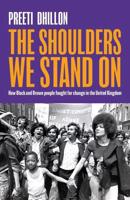Publisher's Synopsis
Do Canadians believe they can succeed on the basis of their own abilities? And how do they compare with Americans, Germans, Italians, Australians and Russians? There is much debate as to how Canadians differ from or resemble citizens of other countries, particularly the United States. Is it true that we are more tolerant and deferential than our southern neighbours, or more accepting of the actions of government in our lives? Do Quebecers view the world differently from other Canadians? Do women see society differently from men? Comparisons such as these, approached through survey analysis, yield up a true portrait of national identity. Social Inequality in Canada brings a comparative perspective to the question of the uniqueness of Canadian society. The challenges attending comparative attitudinal research led to the creation in 1980 of the International Social Survey Programme (ISSP), represented in Canada by the Carleton University Survey Centre. Their data provide the basis for this vanguard study of international attitudes toward social inequality: who's up, who's down and who's responsible for changing society? Social Inequality measures the consistency and logic of perceived social conditions and priorities in Canada compared with 18 other countries. It is essential reading for social scientists and policy-makers of every persuasion.










